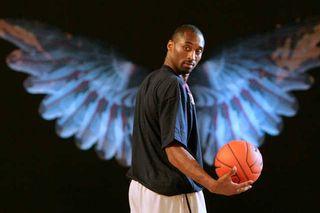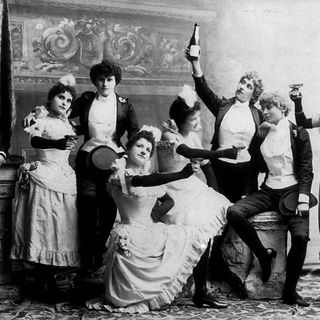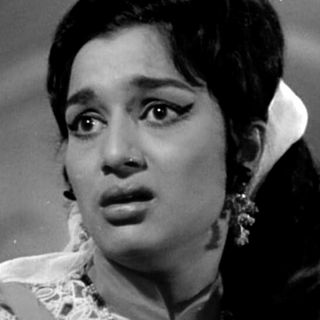
Post Kobe Bryant’s Tragic Death, Fans Reckon With the Legend’s Complicated Legacy
Bryant had a credible rape allegation against him that was settled out of court in 2005.

Editor’s Note: This piece has been updated with additional context since its initial publication.
On Sunday, Jan. 26, 2020, Kobe Bryant died in a sudden, tragic helicopter crash. Other fatalities of the crash included his oldest 13-year-old daughter Gianna Bryant, and baseball coach John Altobelli, his wife and daughter. Bryant’s wife, Vanessa, and three other daughters were not involved in the crash. The news of the accident shocked basketball fans across the globe, most of whom have grown up with Bryant’s genius on the court.
Headlines flooded social media exalting the former professional basketball player and his legendary 20-season stint with the Los Angeles Lakers, with fans across the world paying their respects to the five-time NBA champion. After retiring in 2016, Bryant often made the news for coaching and playing basketball with Gianna, who was fondly remembered as having the potential to follow in her father’s footsteps. For most, Bryant has become the embodiment of modern basketball, and he’s well on his way to being immortalized for it.
In the last 24 hours, fans have discussed the legend of Bryant and his legacy — what he leaves behind as a professional basketball player, as a celebrity, as a person and as a father. And while his excellence as an athlete deserves to be the focus of our adulation in his death, there is another aspect of Bryant’s legacy that warrants attention — one that is uncomfortable to talk about in times of grief, but one we, as his fans, must reckon with anyway.
The Kobe Bryant rape case played out in the early 2000s, when a woman employee at the Lodge & Spa at Cordillera in Colorado, U.S. filed a sexual assault complaint against Bryant, who was staying at the resort. Her testimony to the police, as dissected by The Daily Beast, details how Bryant kissed her in his room (which she says was consensual) but then started to grope her without her consent. Her testimony also gives graphic details of how Bryant prevented her from leaving by choking her (the case detective’s medical report proved the woman had lacerations on her neck) and then raping her against a couch (the same medical report also showed lacerations on the woman’s vagina that a nurse confirmed was in line with genital trauma and did not signal she had consensual sex).
Bryant, however, repeatedly told the police and the press the sex was consensual but had expressed interest in settling the case without a fuss, because his wife would be “infuriated” if she found out. The criminal case against Bryant was dismissed before it began — the survivor declined to come testify, following months of harassment she faced from the media and basketball fans for having tried to mar Bryant’s reputation. Bryant did apologize for his actions, delivering a half-acknowledgment of the incident by admitting the woman may have had a different view of the rape than what he harbored, but eventually, only a civil suit against him remained, which both parties settled outside of court. Bryant went on to play for 12 more years, breaking records, winning trophies and landing all the top brand commercials the sporting world could offer him.
Related on The Swaddle:
Indian Women’s Football Surges Ahead Without Resources, All Thanks to Its Players
The Daily Beast report includes an interview Bryant gave to the Los Angeles Times post the alleged sexual assault: “When everything comes clean, it will all be fine, you’ll see. But you guys know me, I shouldn’t have to say anything. You know I would never do something like that.” The reputation Bryant had built for himself and the adoration he had carefully cultivated over the years existed as a shield for his personal life, which has remained impenetrable and unmarred to date. When Bryant’s name goes down in the annals of basketball history, it will be important to detail his accomplishments, but they cannot exist in isolation. He took the privilege of his name and fame and allegedly compromised another woman’s agency, and then used that same privilege to continue on with building on his empire as if nothing had happened — and all of his fans let him. Let Bryant also go down in the annals of our history as a man who abused his power and whose social and professional capital helped him skate through life without showing accountability for his actions.
Too often, we let our worship for sports stars cloud our judgment of how they should exist in society, as if the pedestal we put them on doesn’t exist on the same plane as the rest of us. We make them untouchable, treat them like gods and consider their athletic prowess their absolution. Too often, despite any and all advancements in inclusion, sports still remains the toxic hyper-masculine phenomenon: for those in the industry — top players such as Cristiano Ronaldo and Neymar have been accused of rape; and those who worship them — a Washington Post journalist tweeted out a report detailing rape allegations against Bryant and received 10,000 death threats, including a job suspension, the Daily Mail reports.
As we remember Bryant for the player and father he was, it is also important at the same time to acknowledge the harmful culture he existed in, and one he contributed to. This was bolstered by the fandom surrounding him, members of which fostered the rest of his career post-2005, as if the sexual assault allegation was but a blip on their radar. They fed the culture in which athletes are reaping the rewards of their athletic prowess — unimaginable fame, exorbitant amounts of wealth and unconditional love — without being held responsible for how they handle any of it. As we feel sorrow and look to a future bereft of one of the greatest basketball legends of all time, we also need to make some space for critique and examine the pedestal we put Bryant on. A man can be multiple things — good father, great athlete, repentant husband and someone capable of committing sexual assault. Each one of these traits is important for us to remember, with the last perhaps being the most important of all.
Rajvi Desai is The Swaddle's Culture Editor. After graduating from NYU as a Journalism and Politics major, she covered breaking news and politics in New York City, and dabbled in design and entertainment journalism. Back in the homeland, she's interested in tackling beauty, sports, politics and human rights in her gender-focused writing, while also co-managing The Swaddle Team's podcast, Respectfully Disagree.
Related


Some Feminist Additions to the Proust Questionnaire
